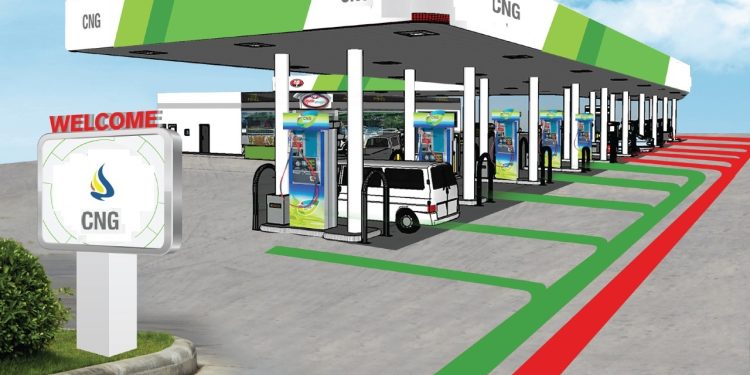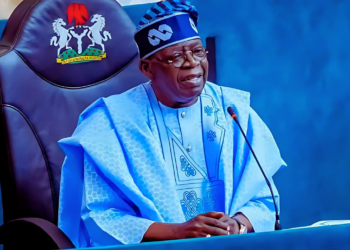In a remarkable move that could redefine Nigeria’s transportation landscape, President Bola Ahmed Tinubu has launched the groundbreaking Presidential Compressed Natural Gas Initiative (PCNGI).
This strategic initiative, as reported by the NTA News Network, is set to revolutionize the way Nigerians commute and offers a promising vision for a more sustainable future.
With a focus on transforming transportation dynamics, the PCNGI targets a staggering 11,500 new CNG-enabled vehicles and 55,000 CNG conversion kits for existing petroleum-dependent vehicles.
This innovative approach not only has the potential to create thousands of jobs across the country but also to stimulate local manufacturing and assembly of conversion kits.
The PCNGI comprises an array of strategic components, as revealed by the NTA, including a nationwide network of workshops across all geopolitical zones and states, local assembly initiatives, and a firm commitment to job creation.
These pillars will play a pivotal role, particularly in the mass transit systems and educational institutions, ushering in a future where commuting costs become more manageable for Nigerians.
Furthermore, this transformative initiative extends beyond just hardware and vehicles. The PCNGI acknowledges the need for skill development and technical expertise.
To this end, it aims to provide essential kits and comprehensive training for the newly employed workforce, underpinning a holistic approach to fostering sustainable employment opportunities.
This initiative is particularly significant in light of President Tinubu’s recent nationwide broadcast on July 31, where he expressed the administration’s dedication to providing affordable transportation alternatives. As fuel prices continue to rise, the launch of the CNG plan offers a timely solution for Nigerians seeking relief.
President Tinubu outlined, “Part of our programme is to roll out buses across the states and local governments for mass transit at a much more affordable rate.
We have made a provision to invest N100 billion between July 2023 and March 2024 to acquire 3000 units of 20-seater CNG-fueled buses.”
He further highlighted the plan’s collaboration with transportation companies, providing access to credit under favourable terms.
This strategic move underscores President Tinubu’s vision for a more sustainable, accessible, and economically viable transportation system. The PCNGI holds the potential to reshape the way Nigerians commute, bolster local industries, and create a positive ripple effect on the economy.
As we look to the future, one can’t help but wonder about the transformative impact this initiative might bring and how it might inspire further innovative solutions to some of the nation’s pressing challenges.












